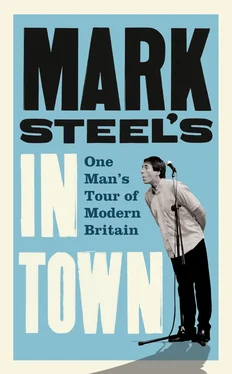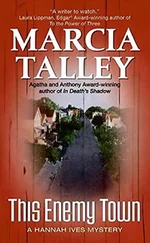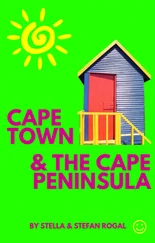I felt cheated, as Captain Scott would have if he’d arrived at the South Pole to find a branch of Caffè Nero.
But right at the end was the famous signpost, saying John o’Groats 874 miles, New York 3,147 miles, so I decided I’d take a picture of that. Except that I had a cup of tea, went out to the signpost, and it had gone. There were some moments of panic, the sort you’d have if you were at the Taj Mahal, bent down to tie up your laces then looked up and it had disappeared. Then I noticed a sign saying it’s £10 to have your picture taken there, and at half past five the people who take the money lock away the signpost and leave. It’s literally locked away, in a metal trunk, and secured in a hut. And that, I contend, makes it the most magnificently mean-spirited tourist attraction in the country.
It’s even worse when you consider that at the other end of this expanse of sea is the Statue of Liberty, resplendently marking its territory, and not, as far as I know, above a plaque saying ‘Give me your tired, your poor, your huddled masses – from 9.00 a.m. to 5.30 p.m. sharp when we close.’
In Penzance, however, there’s a grudging acceptance that tourists have to be catered for, even if they’re frustratingly demanding for locals who just want to get on with their normal lives. So you feel like a six-year-old at half term, pestering your dad for attention while he’s trying to work. But the real disdain is reserved for those who rent a cottage in the summer and convince themselves it’s so magical and far away from urban din and the sunset’s so divine that they move down. Then a few months later they’re screaming, ‘I can’t believe there’s nowhere to get stuffed olives after nine at night. And the estate agents never mentioned it would get dark this early in January. Take me home!’
For many people, living in the area has a rugged romance, but it flows from a shared sense of struggle, of sticking it out despite the lowest incomes in Britain, the remoteness, the feeling that no one in the big cities is bothered about their problems, such as the dramatic collapse of the fishing industry. One expression of this disgruntlement is how some of the ways of the rest of the country haven’t quite made it down there. I was shown round one of the big pubs by a proud landlord, who explained to me the origins of the ship’s wheel propped against one wall, and his paintings of Nelson, and then in one bar he said, ‘Women weren’t allowed in this room until about twenty-five year ago – before all this PC shit.’
It’s quite endearing, this unexpected sense of what’s normal. On my first trip to Penzance I heard a couple of people make remarks about the snotty ways of St Ives, a town a few miles to the north. So when I was on stage I asked the audience if there was a general feeling that St Ives was posh, and a woman called out, ‘It’s posh all right – they’ve got a dentist.’ As a definition of posh that is unsurpassable, and leaves you assuming that anyone with an infected tooth in Penzance ties a rope round it, with the other end tethered to the Isles of Scilly ferry so that as it sails off it yanks the bastard out.
It takes a couple of days in Penzance to become aware that almost everything is slightly out of sync with the rest of Britain. There’s a celebrated pub, called the Admiral Benbow, with a statue of a smuggler lying on the roof, in memory of an early-eighteenth-century shoot-out with a customs official. During a meal in this pub, the landlord came up to a group of four of us and said there was live music upstairs, and we’d be fools to miss it as they were astounding musicians. So we went up, and there were twelve people sat in a circle, each taking turns to sing a Cornish song, except for a man in his fifties with spiky blond hair, nose studs and implausibly red cheeks like a sunburned Johnny Rotten who recited a poem about a man who divorced his wife because he didn’t like her pasties.
Then a woman with no teeth at all sang a song about a Cornish woman with twelve sons, all of whom became soldiers, and in each verse another one got killed until there were none left. Then her friend sang a song about a ship setting off with a hundred men on board, and you knew those poor fuckers would be lucky to make it to the chorus. As expected, every one of them was drowned, though I’d been hoping for a twist in which they all came back with sacks full of fish, but were eaten by a runaway leopard. Then they turned to me. ‘What song do you have for us, dear?’ they asked, and I thought, ‘What sort of fishing disaster song do I know? I’m from London.’ Unless I made one up that went, ‘In nineteen hundred and ninety-six old Dave went out in the rain, to buy some cod in parsley sauce but was never seen again.’
‘So the moment has arrived that I’ve been dreading,’ I said, and considered knocking out a version of Eminem’s ‘The Real Slim Shady’ or ‘The Wheels on the Bus go Round and Round’, but instead we all said we were a bit tired and left, so instead they drew a raffle for a packet of biscuits. Funnily enough, a similar thing happened when I went to see the Wu-Tang Clan.
It isn’t just a prejudice, this sense of being somewhere that doesn’t fit in. Cornwall has a tradition of wanting to keep its distance. The most strident expression of that sentiment comes from Mebyon Kernow, the Cornish nationalist party, which has several councillors. It was founded in 1951, and by 1964 it had five separate branches. Ask someone to guess where those branches were, and see how long it is before they get the correct answer: Penzance, Padstow, Redruth, Truro and Nigeria.
For a while there was a militant wing of the Cornish movement, called An Gof. According to the official history of Mebyon Kernow, ‘They claimed responsibility for a blaze at a Penzance hairdresser’s, attacked in mistake for the Bristol and West Building Society.’
You might think that after a mishap like that they’d keep quiet and hope the police assumed it was revenge for a dodgy perm, but they thought the cause of Cornish nationalism would be advanced if they claimed responsibility, although it’s hard to think of any other combination of shops it would be more difficult to mix up when trying to burn one of them down: not a scrap metal yard for a branch of World of Leather, or a vegan café for a place that changes tyres.
But these movements are marginal to the vague but widespread sense that Cornwall isn’t entirely Britain. It has its own flag, a little white cross and the rest entirely black, as if it was designed by a fourteen-year-old boy who sits in his room all day listening to My Chemical Romance. It has a patron saint, called St Piran, and an annual holiday on which most towns put on a procession.
This semi-dislocation from the rest of Britain is probably a result of Cornwall remaining Celtic while the rest of England was occupied by the Romans. So at unexpected moments as you turn a corner you’ll find an enigmatic stone monument or Celtic cross poking lopsidedly from the edge of a field, whereas anywhere else in England the Romans would have torn it down and replaced it with an aqueduct.
One consequence of this is that there remained a separate Cornish language. Penzance was the last area where it was the first language, up until the sixteenth century.
By the seventeenth century Cornish had mostly died out. But since the 1930s there’s been a movement to revive it, and now about two hundred people speak it. I got a book called Teach Yourself Cornish from the Penzance library, and the librarian said, ‘Would you like book two as well?’ which seemed a bit optimistic Anyway, even a militant Cornishman only needs a few essential phrases, like ‘Ogh! Ni re settyas an gempenoryon-gols gans tan dre wall,’ which translates as, ‘Oh no, we’ve set the hair-dressers on fire by mistake.’
Читать дальше












